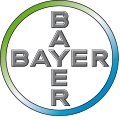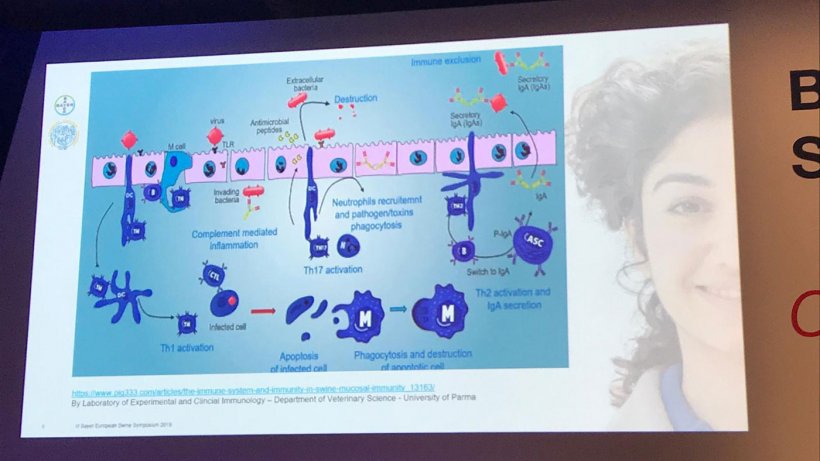 Growing global demand for animal protein is driving-up pork production. But set against a backdrop of the African Swine Fever (ASF) outbreak and greater emphasis on well-being, new tools and innovations are more essential than ever before for the sustainability of the swine industry.
Growing global demand for animal protein is driving-up pork production. But set against a backdrop of the African Swine Fever (ASF) outbreak and greater emphasis on well-being, new tools and innovations are more essential than ever before for the sustainability of the swine industry.
At the Bayer European Swine Symposium 2019, held in Madrid, Spain, one of Europe’s largest pork producing countries, more than 290 swine professionals from 15 countries heard from leading global swine experts.

Dr Alex Eggen, director of swine consulting firm AEVC in the Netherlands, presented a complex picture of the global market. As China, the world’s largest producer of pork, grapples to control African Swine Fever – a situation unprecedented by any other disease outbreak – a shortage of pork is considered by some to be inevitable. Dr Eggen explained that pork producers have the chance to fill the gap in supply if they can reduce piglet mortality and enhance production, particularly through higher biosecurity standards and adopting new technology to increase efficiency.
One of the most critical periods of a piglet’s life takes place in the farrowing pen. In neonatal pigs passive immunity and in particular mucosal immunity by colostrum and also milk (lactogenic immunity) are essential for protection against enteric disorders. Enteritis are not uncommon and represent a major contributor to piglet morbidity and mortality. Prof Dr Paolo Martelli from the Department of Veterinary Science at the University of Parma, Italy explained the importance of correct diagnosis for proper treatment. He revealed that the annual cost of neonatal diarrhoea was recently estimated to be €134 per sow in affected herds.

Coccidiosis was highlighted as one of the most common causes of piglet diarrhoea, making effective control of the parasite essential, explained Dr Hans-Christian Mundt, Veterinary Consultant, Germany. Prof Dr Anja Joachim from the Institute of Parasitology, University of Veterinary Medicine in Vienna, Austria emphasized best practices in hygiene procedures to inactivate oocysts and control coccidiosis on the farm and recommended timely treatment of piglets with toltrazuril.
Another common health challenge affecting suckling piglets is iron deficiency anaemia. Dr Jens Peter Nielsen, Dr Jens Peter Nielsen, professor of porcine health and director of the CPH pig centre at the University of Copenhagen, highlighted that some animals are already born with anaemia and that iron supplementation is vital for the development of robust piglets. For him, day three of life is optimal timing for iron supplementation to protect piglets from subclinical anaemia.
Management and well-being were also high on the agenda. Dr Søren Sandgaard Thuesen, head of in-farm solutions, at swine breeder DanBred in Denmark, gave a masterclass on creating the perfect farrowing house. While Prof Dr Nicole Kemper, director of the Institute for Animal Hygiene, Animal Welfare and Farm Animal Behaviour at the University of Hannover, Germany shared her findings on the importance of advancing well-being right from the farrowing pen, including the benefits of reduced handling of sows and piglets.
Dr Julie Ménard, swine veterinarian and breeding expert from Canada agreed. She explained how skilled workers have repeatedly demonstrated that understanding – and meeting – the needs of sows and piglets produce the best results.
That’s why the industry is innovating to drive advancements in swine well-being and health. Luiz Felipe Lecznieski, Global Swine Veterinary Scientific Affairs Manager at Bayer Animal Health presented scientific evidence that demonstrated how an innovative toltrazuril plus gleptoferron injectable combination benefited piglets and created efficiencies for producers at the same time. Suckling piglets need to be protected from iron deficiency anaemia and coccidiosis, and by finding ways to combine treatments handling can be reduced and well-being enhanced.
Investing towards advancing well-being and gaining efficiencies in on-farm processes offer swine producers an opportunity to enhance output of their herd and set them apart from their competition.
September 27, 2019 - Bayer




